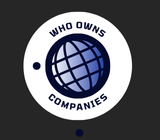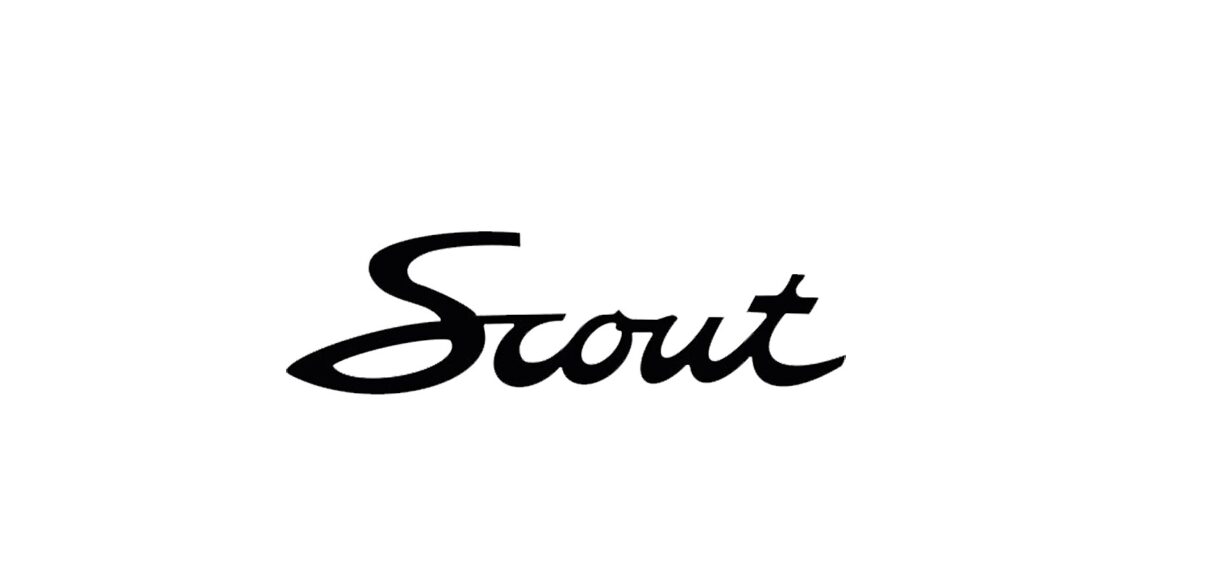In the rapidly evolving landscape of electric vehicles (EVs), few brands evoke as much nostalgia and forward-thinking innovation as Scout Motors. As consumers increasingly seek rugged, off-road-capable EVs that blend heritage with cutting-edge technology, questions about Scout Motors ownership have surged. Who owns Scout Motors? At its core, Scout Motors is a wholly owned subsidiary of the Volkswagen Group, the German automotive giant known for brands like Volkswagen, Audi, and Porsche. This ownership structure positions Scout as a strategic arm of Volkswagen’s ambitious push into the North American EV market, leveraging the iconic Scout name from the mid-20th century to compete with disruptors like Rivian and Tesla. But the story goes deeper: Scout operates with a degree of independence, allowing it to tailor its direct-to-consumer sales model and American-centric production to appeal specifically to U.S. buyers. In this comprehensive guide, we’ll explore Scout Motors’ ownership, its rich history, upcoming models, production plans, and market impact—shedding light on why this brand is poised to redefine electric trucks and SUVs.
The Historical Roots of Scout Motors: From International Harvester to Volkswagen Revival
To understand Scout Motors ownership today, we must rewind to 1960, when the original Scout debuted under International Harvester (IH), a Chicago-based agricultural machinery company. The IH Scout was a compact SUV designed for farmers and outdoor enthusiasts, offering four-wheel drive and a boxy, utilitarian aesthetic that influenced generations of off-roaders. It came in models like the 80 and 800 series, powered by gasoline engines ranging from 152 cubic inches to V8 options, and became a symbol of American rugged individualism. Production continued until 1980, with over 500,000 units sold, but IH’s pivot away from vehicles led to the brand’s dormancy.
Fast-forward to the 21st century: The Scout name lay unused until Volkswagen Group acquired Navistar International Corporation—the successor to IH—in 2020 for approximately $3.7 billion. Navistar held the dormant Scout trademarks, which Volkswagen saw as a golden opportunity to revive an American icon amid its electrification strategy. In November 2021, Volkswagen announced the formation of Scout Motors Inc. as a new entity focused on EVs, officially launching it in 2022. Headquartered in Novi, Michigan, Scout Motors was established as a 100% owned subsidiary of Volkswagen AG, the publicly traded parent company of the Volkswagen Group. This ownership ensures financial backing from one of the world’s largest automakers, with Volkswagen committing billions to Scout’s revival.
Volkswagen’s acquisition wasn’t just opportunistic; it aligned with the group’s “TOGETHER-Strategy 2025,” which emphasizes sustainable mobility and EV expansion. By owning Scout Motors, Volkswagen gains a foothold in the lucrative U.S. pickup and SUV segments, where it has historically struggled against domestic giants like Ford and General Motors. Scout’s independence in operations—designing vehicles in Michigan and manufacturing in South Carolina—allows it to embody an “all-American” ethos, distancing itself from Volkswagen’s European image while benefiting from the parent’s engineering prowess. This hybrid model of ownership has sparked both excitement and controversy, as we’ll explore later.
Volkswagen’s Strategic Ownership: Backing Innovation Without Micromanagement
Who owns Scout Motors in practical terms? Volkswagen Group holds full equity ownership, providing the capital, intellectual property, and global supply chain expertise needed to launch a premium EV brand from scratch. However, Scout Motors positions itself as an “independent company” backed by Volkswagen, emphasizing autonomy in decision-making. This setup is deliberate: CEO Scott Keogh, a Volkswagen veteran, leads Scout with a team of American executives, fostering a culture tailored to U.S. preferences for spacious, adventure-ready vehicles.
Under Volkswagen’s umbrella, Scout benefits from shared resources like battery technology from the group’s PowerCo division and software from Cariad, Volkswagen’s EV software arm. Yet, ownership comes with strings—Volkswagen’s board oversees major investments, such as the $2 billion Production Center in Blythewood, South Carolina, which broke ground in 2023 and is set to employ 4,000 workers by 2028. This facility underscores Volkswagen’s commitment: At peak capacity, it will produce 200,000 vehicles annually, injecting economic vitality into the region with an estimated $5 billion in supplier investments.
Critics might question whether Scout’s ownership dilutes its “American” identity, but proponents argue it strengthens it. Volkswagen’s purchase of Navistar not only secured the Scout IP but also integrated heavy-duty truck expertise, ensuring Scout EVs are built to haul and tow like their fossil-fuel predecessors. In essence, Volkswagen owns Scout Motors to conquer the EV off-road niche it couldn’t crack with mainstream brands like ID. Buzz or ID.4.
Scout Motors’ Lineup: Reviving Icons with Electric Power
Central to Scout Motors’ appeal under Volkswagen ownership are its upcoming models, designed to honor the original Scout’s legacy while embracing electrification. The brand’s first two vehicles, unveiled in production-intent form in October 2024, are the Scout Traveler SUV and Scout Terra pickup truck—both slated for a 2028 model year launch.
The Scout Traveler is a three-row midsize SUV with retro-futuristic styling: boxy lines reminiscent of the 1960s Scout, but with modern LED lighting, a panoramic glass roof, and up to 350 miles of range on a 400-volt architecture. It seats five to seven passengers and offers optional range-extender batteries for those wary of pure EV limitations, pushing total range toward 500 miles. Towing capacity hits 7,000 pounds, making it ideal for family adventures or light work duties.
Complementing it is the Scout Terra, a midsize electric pickup with a 5.5-foot bed, dual-motor all-wheel drive, and off-road credentials like 10 inches of ground clearance and locking differentials. Starting under $60,000, the Terra targets value-conscious buyers seeking alternatives to the Ford Ranger or Chevy Colorado, but electrified. Both models feature bidirectional charging for powering tools or campsites, and infotainment powered by Volkswagen’s MIB4 system, customized for Scout’s rugged vibe.
Rumors swirl of a third model—a two-door convertible off-roader—potentially expanding the lineup by 2030, but Scout remains focused on nailing its core duo. Production begins late 2027 at the South Carolina plant, with initial volumes ramping to 50,000 units in year one before scaling up. This timeline reflects Volkswagen’s disciplined approach to ownership: investing in quality over haste, amid supply chain challenges plaguing the EV sector.
Production Plans and Sustainability: Volkswagen’s American Bet
Scout Motors’ production strategy, bankrolled by Volkswagen, emphasizes localization to minimize tariffs and appeal to “Buy American” sentiments. The Blythewood facility spans 1,000 acres, incorporating solar arrays and water recycling for net-zero operations—a nod to Volkswagen’s carbon-neutral goals by 2050. Sourcing 60% of components domestically, Scout aims for compliance with the Inflation Reduction Act’s EV tax credits, potentially saving buyers up to $7,500.
Ownership by Volkswagen enables this scale: The group’s $7.1 billion U.S. EV investment includes Scout’s slice, ensuring access to gigafactory-level battery production. Yet, challenges loom—delays from the range-extender pivot pushed timelines from mid-2027 to late that year. Still, with 200,000 annual capacity, Scout could capture 5-10% of the midsize EV truck market, per analyst projections.
Market Impact and Competition: Disrupting the EV Landscape
Scout Motors’ Volkswagen-backed entry ripples through the EV market, challenging entrenched players with its heritage and direct-sales model. Priced competitively against Rivian’s R1T ($73,000 starting) and Ford’s F-150 Lightning ($50,000), Scout targets the $50-70k sweet spot for adventure seekers. Its nostalgic branding—evoking the IH Scout’s cult following—differentiates it from Tesla’s Cybertruck minimalism or GM’s utilitarian Hummer EV.
However, ownership ties to Volkswagen have ignited battles over sales channels. Scout plans direct-to-consumer sales via its website, bypassing traditional dealers—a move echoing Tesla but clashing with U.S. franchise laws. The National Automobile Dealers Association (NADA) and state groups in California, Florida, and South Carolina have sued, alleging unfair competition since Volkswagen owns both Scout and its dealer network. Scout counters that its independence shields it from these claims, urging the DOJ to reform protectionist laws. This controversy could reshape dealer-manufacturer dynamics, boosting consumer choice if Scout prevails.
In competition, Scout Motors leverages Volkswagen’s R&D to outpace rivals in off-road prowess. While Rivian dominates premium EVs, Scout’s midsize focus and range extender address range anxiety better than pure-battery foes. Market forecasts predict the U.S. EV truck segment growing to $100 billion by 2030; Scout could claim a 2-3% share, driving Volkswagen’s North American sales up 20%.
The Future of Scout Motors Under Volkswagen Ownership
As Scout Motors accelerates toward 2027 production, its Volkswagen ownership promises stability in a volatile EV world. With potential expansions into autonomous features and software updates over-the-air, Scout could evolve beyond trucks into a lifestyle brand. Challenges like dealer lawsuits and economic headwinds persist, but backed by a $300 billion conglomerate, Scout is resilient.
In summary, Volkswagen Group owns Scout Motors, infusing it with resources to revive a beloved name for the electric era. For buyers eyeing rugged EVs, Scout represents more than ownership—it’s a bridge between past adventures and sustainable futures. Stay tuned as this American revival charges ahead.
References
- “Is Scout Motors a part of Volkswagen?” Scout Motors Support. https://support.scoutmotors.com/en/articles/10034676-is-scout-motors-a-part-of-volkswagen
- “Volkswagen, Audi Dealers Sue Scout Motors over Sales Model.” Car and Driver. https://www.caranddriver.com/news/a63667883/volkswagen-audi-dealers-scout-motors-lawsuit/
- “Volkswagen-owned Scout Motors Bets on its Rugged Heritage.” Newsweek. https://www.newsweek.com/volkswagen-owned-scout-motors-bets-its-rugged-heritage-american-labor-1872861
- “Our Story.” Scout Motors Official Website. https://www.scoutmotors.com/ourstory
- “Scout Motors Aims To Help Volkswagen Do What It’s Never Done.” InsideEVs. https://insideevs.com/news/709267/scout-motors-factory-groundbreaking-vw/
- “Scout Motors: Its History Dating Back To 1960 And Its Modern Revival.” Top Speed. https://www.topspeed.com/scout-motors-history-revival/
- “VW Scout: Everything You Need To Know About The EV Upstart.” CarBuzz. https://carbuzz.com/features/vw-scout-everything-you-need-to-know/

